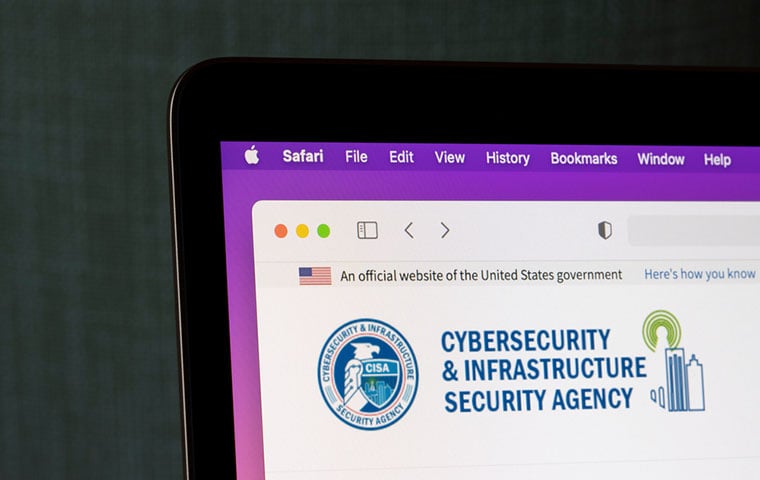 Among employees potentially affected by RIFs or transfer to other DHS components such as ICE and CBP are those of CISA’s stakeholder engagement and infrastructure divisions. Image: Tada Images / Shutterstock.com
By: FEDweek Staff
Among employees potentially affected by RIFs or transfer to other DHS components such as ICE and CBP are those of CISA’s stakeholder engagement and infrastructure divisions. Image: Tada Images / Shutterstock.com
By: FEDweek StaffA group of five House Democrats active in civil service issues has questioned reassignments and potential layoffs of DHS Cybersecurity and Infrastructure Security Agency, noting that the agency itself recently issued an alert to agencies to “address vulnerabilities in widely used federal hardware that has been compromised by an imminent threat from nation-state hackers.”
Among employees potentially affected by RIFs or transfer to other DHS components such as ICE and CBP are those of CISA’s stakeholder engagement and infrastructure divisions, “the very teams responsible for coordinating with public and private partners to identify, mitigate, and prevent cyberattacks,” they wrote.
They asked for information including assessments of the impact of the transfers, and what is being done so that CISA “can continue to defend against cyber threats in light of mounting threats and personnel reductions.”
The White House trained its eyes on CISA early in the current administration. Former director Christopher Krebs publicly contradicted Trump’s claims that the 2020 election was compromised through hacking and was fired in a Twitter post at the time. Said a presidential memo from April 9 revoking this security clearance, “Krebs, through CISA, falsely and baselessly denied that the 2020 election was rigged and stolen, including by inappropriately and categorically dismissing widespread election malfeasance and serious vulnerabilities with voting machines.”
Meanwhile, a bill has been introduced in the Senate (S-2983) to reauthorize for another 10 years the Cybersecurity Information Sharing Act, which expired September 30 after being in effect since 2015. That law had encouraged private companies to voluntarily share cybersecurity threat indicators – such as malware signatures, software vulnerabilities, and malicious IP addresses – with DHS.
The law had “helped prevent data breaches, protected personal information, and strengthened the federal government’s ability to respond to cyberattacks from foreign adversaries and criminal networks,” bipartisan sponsors said in calling for it to be reinstated.
Senate Eyes Vote to Pay Federal Employees Working Unpaid
Series of Bills Offered to Address Shutdown’s Impact on Employees
Public Starting to Feel Impact of Shutdown, Survey Shows
OPM Details Coverage Changes, Plan Dropouts for FEHB/PSHB in 2026
Does My FEHB/PSHB Plan Stack Up? Here’s How to Tell
2025 TSP Rollercoaster and the G Fund Merry-go-Round
See also,
TSP Takes Step toward Upcoming In-Plan Roth Conversions
5 Steps to Protect Your Federal Job During the Shutdown
Over 30K TSP Accounts Have Crossed the Million Mark in 2025

